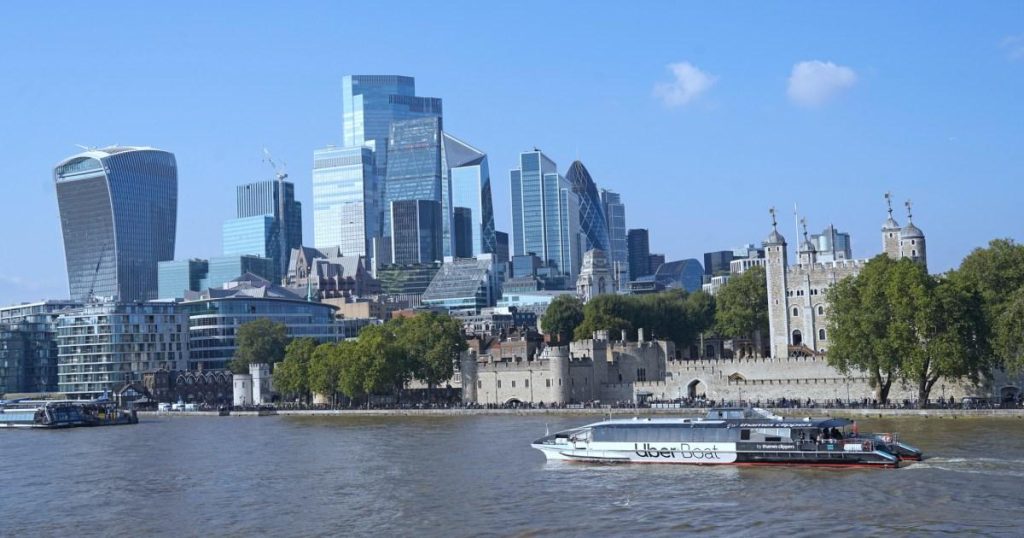The Exodus from London: A Search for Greener Pastures and Affordable Living
The allure of London, with its vibrant culture and bustling economy, has long drawn people from all corners of the globe. However, the city’s relentless pace, exorbitant living costs, and increasingly crowded environment are prompting a growing number of residents to seek refuge elsewhere. The rising cost of living, exemplified by the threat of £7 pints and average house prices nearing £700,000, coupled with the daily grind of packed commutes, has become a catalyst for many Londoners to re-evaluate their urban existence. This trend, accelerated by the rise of remote work, has led to an exodus from the capital, with residents seeking a more balanced lifestyle and affordable housing in surrounding counties. While the pull of London’s cultural and economic opportunities remains strong, the desire for a more sustainable and less stressful life is becoming increasingly compelling.
Data reveals a significant shift in migration patterns, with Londoners venturing primarily to nearby counties like Essex and Surrey, maintaining a manageable commuting distance while enjoying a change of scenery and pace. The average distance of relocation remains within a 45-mile radius, suggesting a preference for maintaining connections to the capital while embracing a more suburban or rural lifestyle. Top destinations include Epsom and Ewell in Surrey, Brentwood in Essex, and Mole Valley in Surrey, all offering a blend of accessible transport links to London and a more tranquil environment. The high percentage of London buyers in these areas underscores the significant impact of this migration trend on the local housing markets. This data underscores the desire for a balance between career opportunities in London and a more affordable and less frenetic lifestyle outside the city.
The appeal of these towns lies in a combination of factors, including good schools, green spaces, and lower crime rates compared to the capital. Epsom and Ewell, renowned for its racecourse and green spaces, offers a family-friendly environment coupled with convenient access to London. Brentwood in Essex boasts a high employment rate, excellent schools, and ample green spaces, making it another attractive option for families. Mole Valley in Surrey, with its picturesque landscapes and historical sites, presents a more rural escape while remaining within commuting distance of London. These destinations offer a compelling alternative to the pressures of London living, providing a more relaxed pace and a greater sense of community.
The decision to leave London is often driven by a combination of financial pressures and the desire for a better quality of life. The escalating costs of housing, food, and entertainment in the capital make it increasingly difficult for many to maintain a comfortable standard of living. The rise of remote work has further fueled this trend, allowing individuals to decouple their work location from their residence. The opportunity to own a larger home, enjoy more green space, and raise a family in a less crowded environment are all significant factors contributing to the exodus. This shift reflects a growing prioritization of well-being and a re-evaluation of the traditional urban lifestyle.
However, the transition to life outside London is not always seamless. Some individuals find themselves missing the vibrancy and cultural richness of the capital, while others struggle to adapt to the slower pace and lack of amenities in smaller towns. One Reddit thread highlights the diverse experiences of London leavers, with some expressing regret over their decision and others praising the improved quality of life they have found. The key takeaway is that the decision to leave London is a personal one, and the ideal location depends on individual priorities and lifestyle preferences. Factors such as access to culture, social opportunities, and the availability of amenities play a crucial role in determining whether the move is a success.
The ongoing migration from London to surrounding areas reflects a broader societal shift in priorities, with a growing emphasis on work-life balance, affordability, and access to nature. While London remains a global hub of culture and opportunity, the rising cost of living and the desire for a more balanced lifestyle are prompting many to seek greener pastures elsewhere. The popularity of commuter towns and smaller cities highlights the growing appeal of a less frenetic and more affordable way of life. This trend is likely to continue as individuals re-evaluate their priorities and seek locations that offer a better balance between career aspirations and personal well-being. The future of urban living may well be shaped by this ongoing search for a more sustainable and fulfilling way of life.


